Are you looking to kickstart an exciting partnership with a tour operator? Crafting a tour operation agreement is essential for ensuring both parties understand their roles and responsibilities. This guide will walk you through the key components of an effective letter template that can help streamline the process. So, if you're ready to embark on this journey, let's dive in and explore the details together!

Introduction and Purpose
The purpose of a tour operation agreement is to establish a clear framework for collaboration between a tour operator and a service provider, such as a hotel or transportation company, ensuring a seamless travel experience for customers. This agreement defines roles, responsibilities, and expectations, allowing both parties to operate efficiently within destinations like Paris, France, and Tokyo, Japan, known for their rich cultural experiences. Key elements include terms regarding pricing structures, cancellation policies, and liability responsibilities, aimed at protecting both the operator and the service provider. The agreement enhances customer satisfaction through well-organized itineraries, guarantees a high standard of service, and fosters long-term partnerships in the competitive tourism industry.
Services and Obligations
Tour operation agreements outline specific services and obligations expected from both the tour operator and clients. A comprehensive agreement defines the tour package details (including duration, itinerary, and included accommodations), payment terms (such as total costs, deposit requirements, and refund policies), and responsibilities (for example, ensuring safety, providing accurate information, and customer service support). It also addresses cancellation terms (indicating conditions under which cancellations may be made), liability clauses (covering insurance and damages), and compliance with local laws and regulations in tourist destinations. Additionally, communication expectations (how and when information will be exchanged) play a crucial role in maintaining clarity and mutual understanding between the parties involved.
Payment Terms
In a tour operation agreement, payment terms outline the specific expectations regarding financial transactions between the tour operator and clients. Payment methods often include credit card, bank transfer, or online payment platforms, with deposits typically being required within a specific timeframe, such as 14 days after booking. Final payments are usually due 30 days prior to the tour departure date, while specific cancellation policies dictate penalties or refunds based on the timing of cancellations, with full refunds commonly available for cancellations made more than 60 days before the tour. Moreover, pricing may include additional fees for optional services, ensuring transparency in overall costs. Clear, detailed payment terms help to foster trust and agreement between parties involved in the tour operation.
Duration and Termination
The duration of the tour operation agreement will span from the start date of January 1, 2024, to December 31, 2025, encompassing a two-year period. This agreement may undergo termination under specific conditions, including but not limited to mutual written consent or breach of contract leading to a failure to fulfill obligations, wherein a 30-day notice period will be required. In the case of unresolvable disputes, either party may initiate termination after an unsuccessful mediation attempt. Furthermore, the agreement will automatically renew annually unless either party provides written notice of intent to terminate at least 60 days prior to the expiration date.
Liability and Insurance
Tour operators must establish comprehensive liability and insurance protocols to ensure guest safety and compliance with local regulations. Liability coverage should include general liability insurance, which protects against claims of bodily injury or property damage, typically starting at $1 million per occurrence. Additionally, operators should consider professional liability insurance to cover errors and omissions in services provided. It is imperative to assess risks associated with specific activities, such as adventure sports or remote excursions, which may require specialized coverage. Insurance policies must be held with reputable companies and updated annually to reflect changes in operations or guest numbers. Clear terms detailing coverage limits, exclusions, and claim procedures should be communicated to all parties involved to mitigate potential disputes.

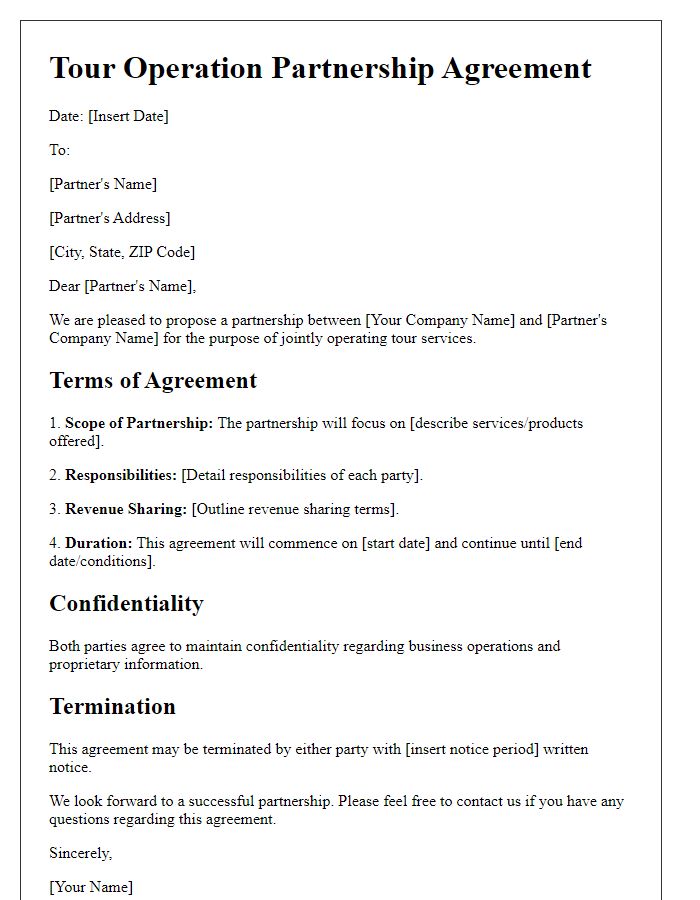
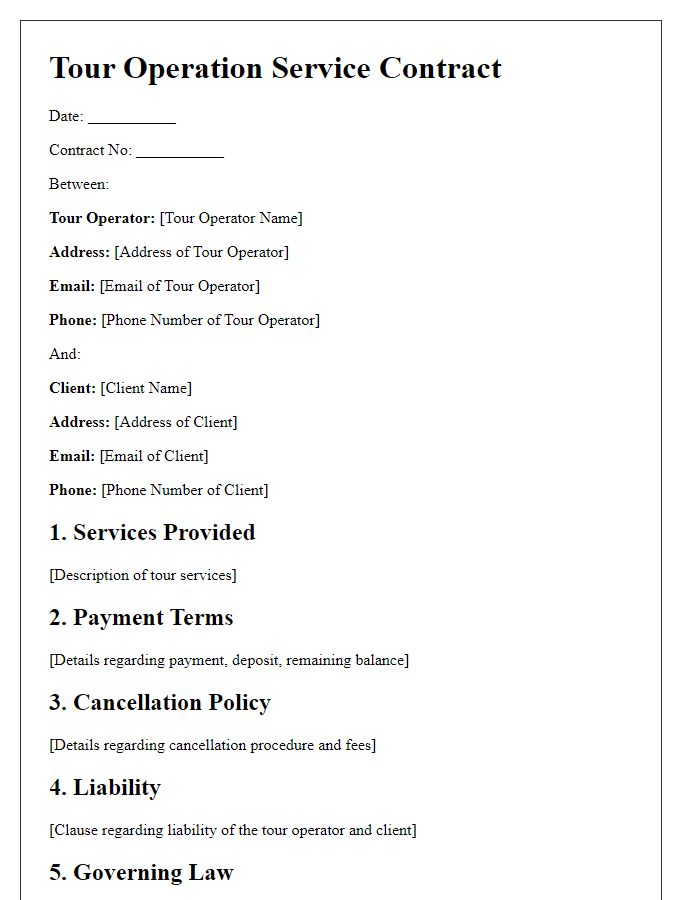
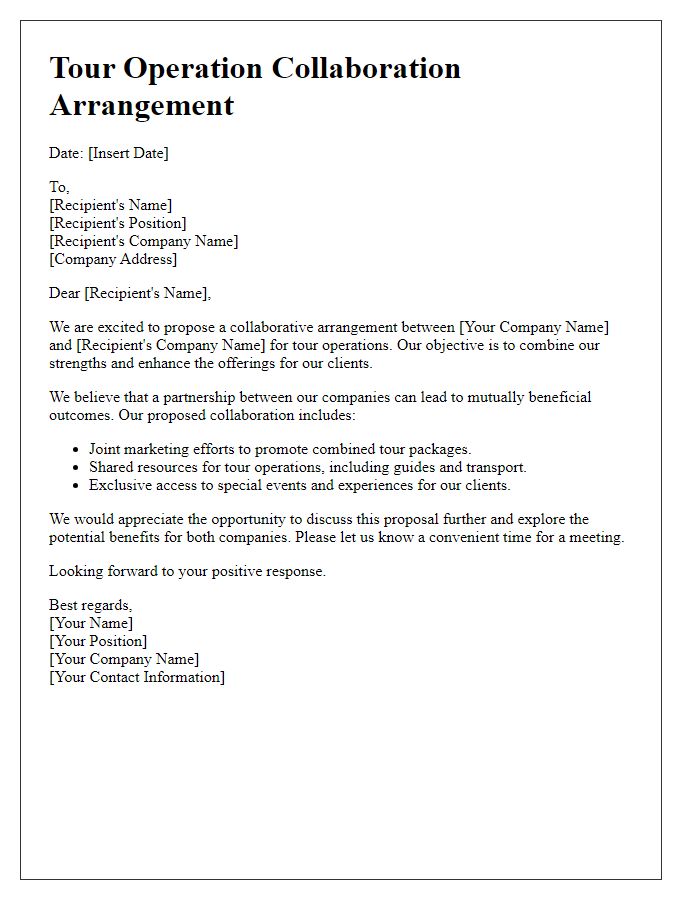
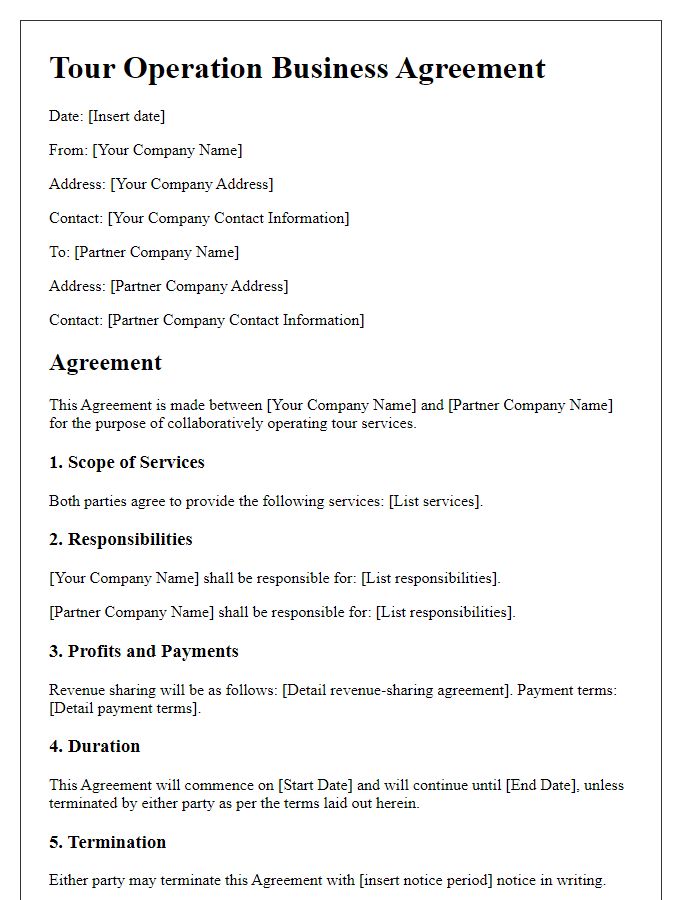
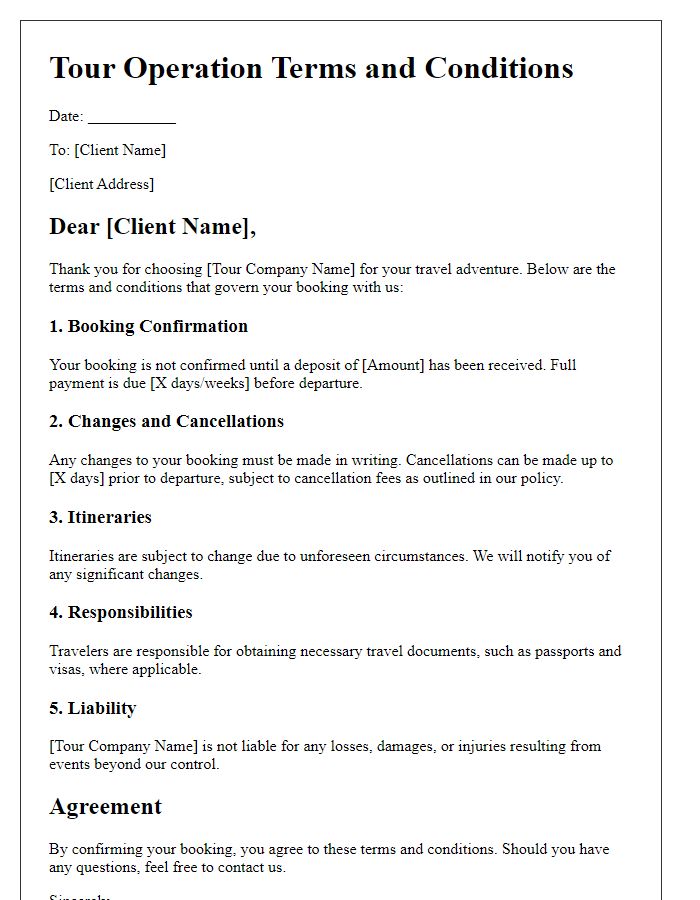
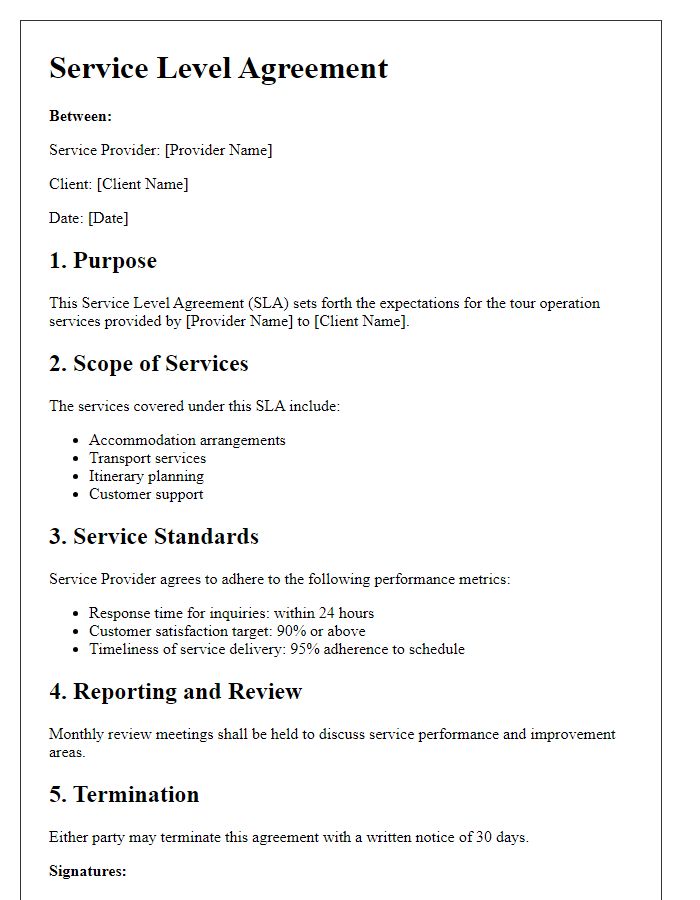
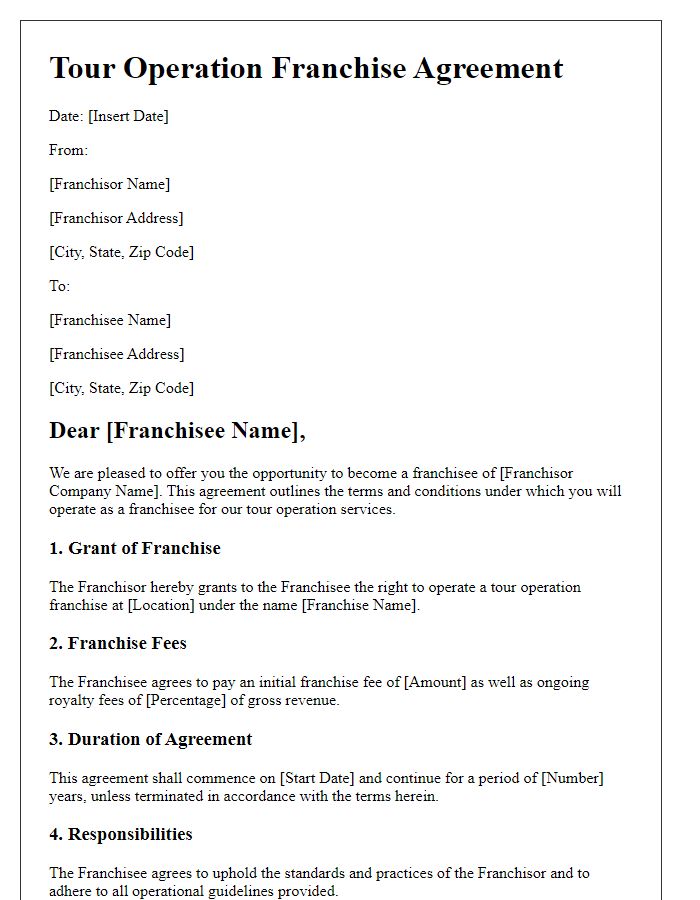
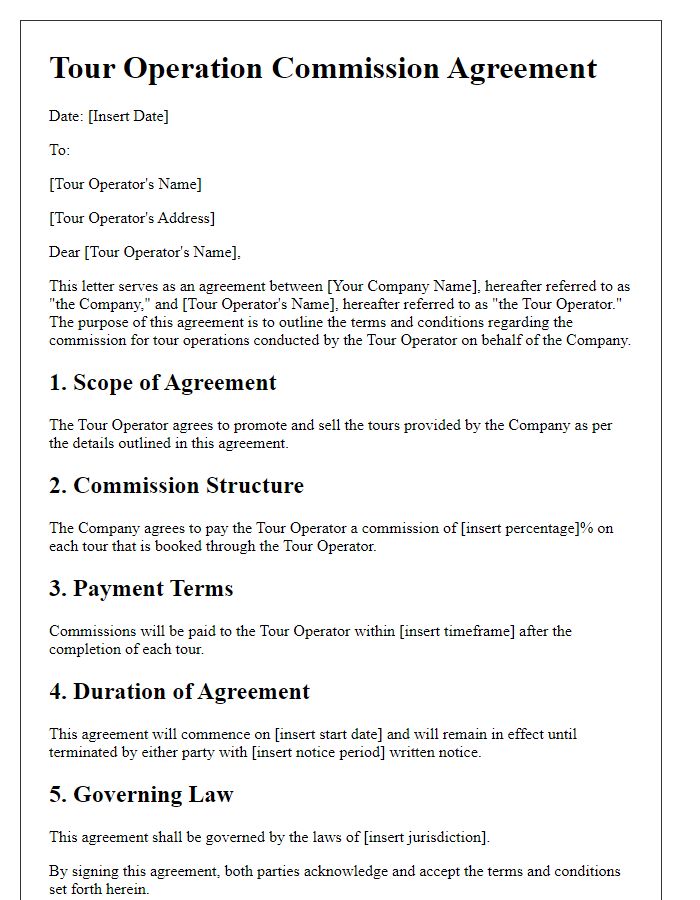
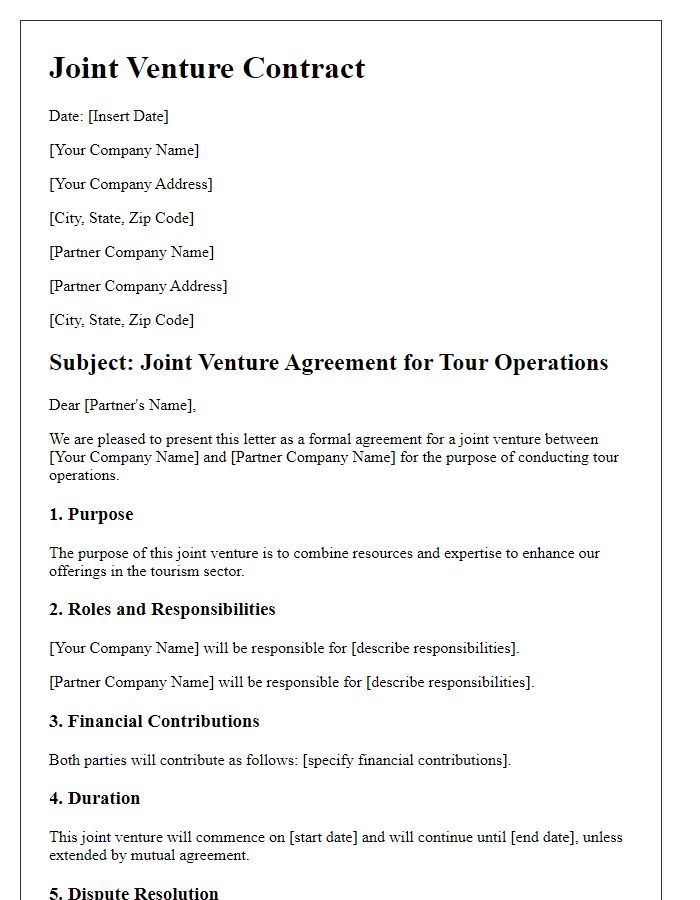
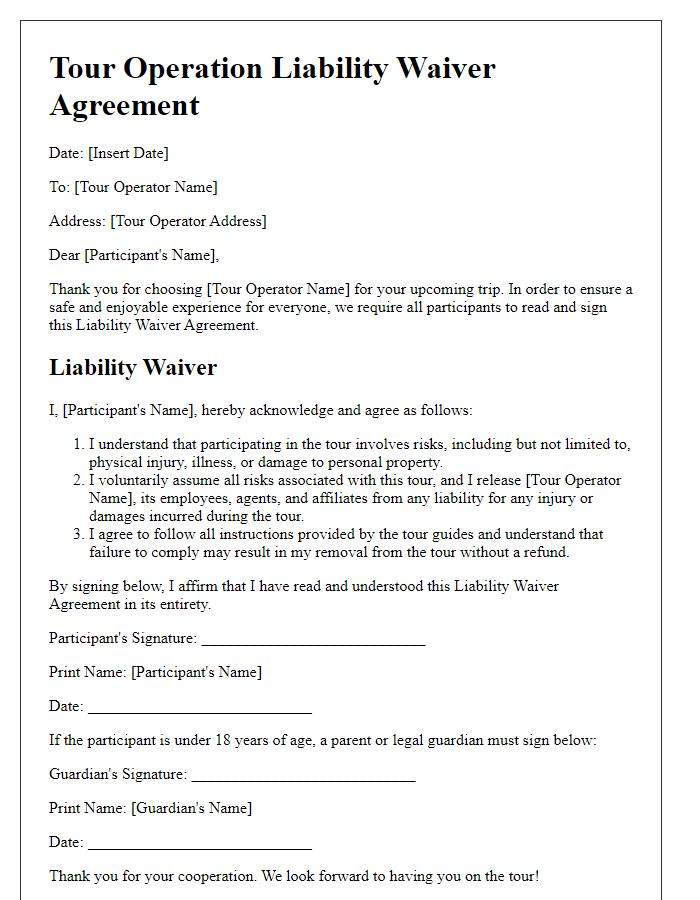


Comments